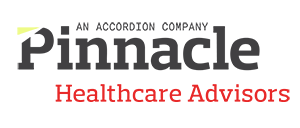
The field of revenue cycle management in healthcare has been rapidly changing over the years leading to an increasing number of revenue cycle teams adopting alternative work arrangements. This trend was accelerated by the pandemic, which forced revenue cycle staff to transition to working remotely. While remote work offers advantages such as flexible schedule and potential money savings, it also presents challenges when it comes to managing a remote team. In this blog post, we will explore eight strategies for managing your remote revenue cycle workforce and ensuring their productivity and success.
- Setting Clear Expectations and Standards. Remote staff need an understanding of their roles, responsibilities, and performance expectations. It is essential to outline performance indicators and deadlines so that every team member knows what is expected of them. Equally essential is setting the productivity and quality standards at which they perform their work. This clarity fosters accountability and empowers employees to take ownership of their work.
- Establishing Communication Channels. Communication plays a role in successfully managing any remote team. It is important to establish easily accessible communication channels such as video conferencing platforms and instant messaging tools. Regular team meetings and individual check-ins provide opportunities to address concerns, celebrate success, and maintain a sense of connection among team members.
- Harnessing Technology. Complementing the right type of productivity and workflow tools with the right form of data reporting is crucial for streamlining core tasks, such as scheduling, medical coding, and accounts receivable management, among others. Cloud-based solutions provide the advantage of access to tools and data from any location enabling remote staff to work effectively.
- Providing Ongoing Training and Support. Virtual training sessions help keep employees updated on industry changes, leading practices, and new and emergent process-specific developments as well as technology features and capabilities. A designated point of contact should be established to address questions or concerns ensuring that remote staff feel supported; this information should be further aggregated and reviewed to understand any consistent issues or trends.
- Delivering Feedback and Recognition. It is important to acknowledge your remote team’s achievements through virtual recognition platforms, team announcements, or personalized messages. This not only boosts morale but also reinforces a sense of belonging within the team. Having candid conversations about under-performance is equally important. Strategies may need to be customized for those that are struggling in a remote environment.
- Focusing on Results. Managers are encouraged to trust, with guardrails, their remote staff’s ability to deliver outcomes and set milestones accordingly as well as monitor progress based on achieved results. This approach fosters a sense of autonomy and empowers employees to manage their time. Managers may need support in forming the optimal management strategies that work for them as individuals and their team members.
- Encouraging Work-Life Balance. Many employees favor the idea of working remotely, but the ease with which the line between work needs and personal commitments may be blurred can be a latent dissatisfier. Tactics aimed at encouraging work-life balance include formalizing consistent work schedules and assignments, promoting breaks and time-off with a plan for coverage, and disseminating digital communications during standard hours.
- Remaining Agile. Being adaptable is key in this evolving healthcare landscape. As such, it is essential to stay open to changes, embrace emerging technologies, and keep up with evolving industry trends. Regularly assessing your work strategies allows you to make adjustments that optimize team performance.
To successfully manage a revenue cycle staff, effective communication, clear expectations, technological solutions, and a supportive approach are all components. By implementing these strategies, you can cultivate an engaged remote workforce that contributes significantly to the success of your organization and make progress in establishing a smooth and effective remote revenue cycle management system, process, and team.
At PinnacleHCA, we have an established strong track record of helping our clients optimize their Revenue Cycle environment and achieve their productivity and financial objectives. If you have any questions or concerns about staffing or would like to learn more about how to leverage your remote staff for your revenue cycle, please feel free to reach out at lchang@pinnaclehca.com or call at 312.282.0357.



